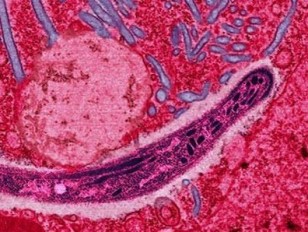Malaria

Presenter: Andrew Spielman
Published: March 2009
Age: 14-19 and upwards
Views: 1918 views
Tags:
Type: Interviews
Source/institution: Vega
Watch now
Professor of Tropical Public Health, Department of Immunology and Infectious Diseases at Harvard School of Public Health is one of the world?s experts on vector born infections such as malaria and dengue which constitute a heavy and increasing burden on human health throughout much of the tropics. In this interview Andrew gives his views on how to achieve a long-term sustainable solution for the control and spread of malaria. He explains that insects that transmit these pathogens generally depend on features of disturbed landscapes that are caused by human activity. Diseases that result derive from interactions linking pathogen, vector, reservoir and human populations. Relevant strategies for long-term improvements in health, according to Andrew should be based on a synthesis of ecological, genetic, physiological, microbiological and immunological information and require a combination of laboratory and field research. Ultimately, these studies seek to devise environmentally-friendly interventions. In Ethiopia, for instance Andrew?s malariological studies focus on the environmental conditions that promote maturation of the anopheline mosquitoes that transmit this infection. In particular, he and his colleagues are exploring the effect of maize cultivation on malaria risk and seek to expand their observation on the importance of maize pollen as a food for the larval stages of these mosquitoes.



